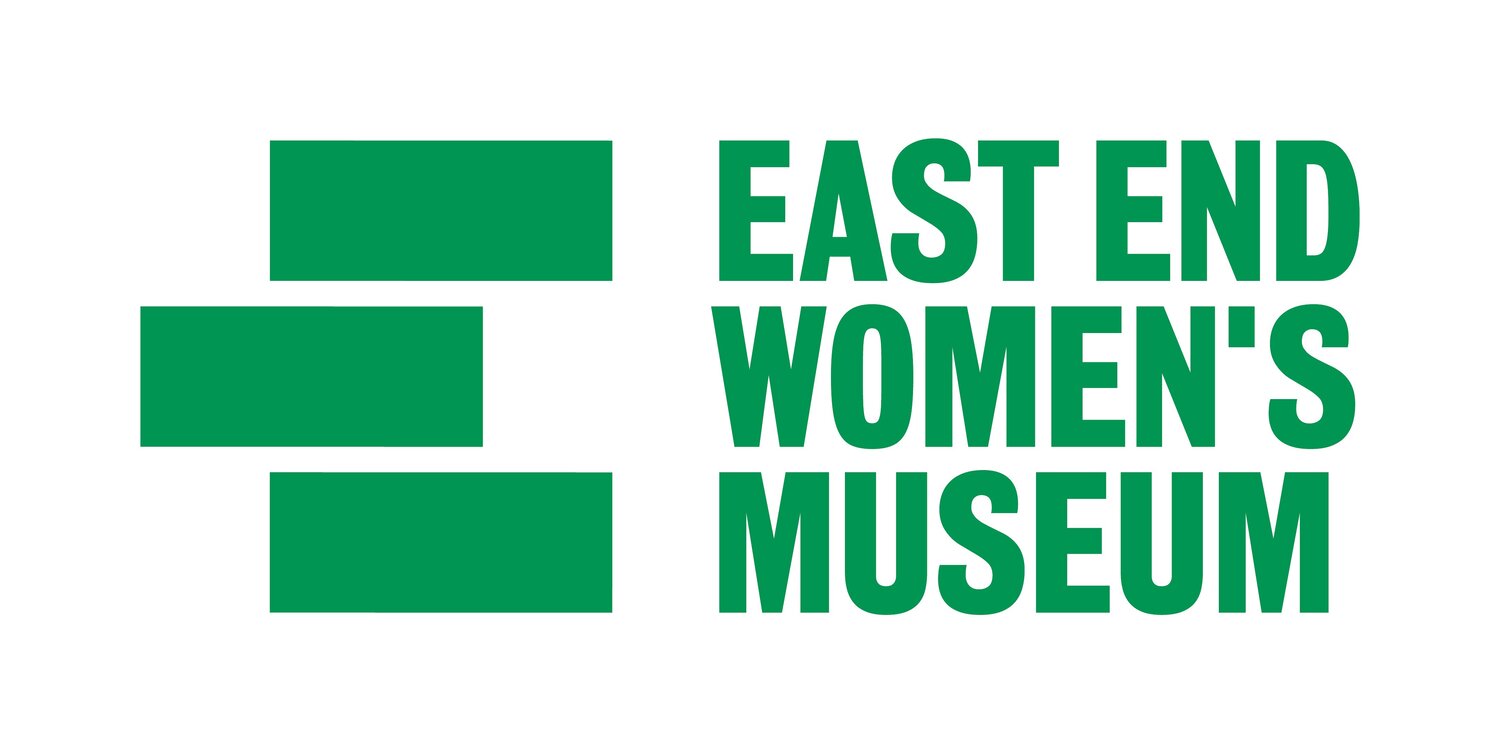We’re a public history project aiming to record, share, and celebrate women’s stories and voices from east London’s history.
We are working towards opening the East End Women's Museum in a permanent home in Barking in 2019/20, but in the meantime we are a 'kitchen table museum' without an office or a building. We put on events, exhibitions, and make resources for schools and researchers to use. Find out more about our events and exhibitions in 2018.
We are a registered nonprofit Community Interest Company, and our company number is 10481957.
Where the idea came from
When a proposed women's history museum on Cable Street in East London turned out to be an excuse to cash in on the popularity of a misogynist serial killer, we decided to make the missing museum a reality.
Crass Jack the Ripper tourism is nothing new, but the new museum on Cable Street represents a huge missed opportunity.
East London has an incredibly rich social, political, and cultural history and women were part of all of it although their voices are seldom heard. Those are the stories we want to tell; stories that illuminate the lives of East End women, not only their deaths.
Our aims
Research, record, and represent women’s histories from across east London.
Challenge gender stereotypes and offer new role models for girls and young women, (especially those from marginalised groups).
Build a long lasting resource for historians, schools, and community groups.
Create opportunities for women and girls to gain new skills and the confidence to tell their own stories.
Inspire and encourage civic participation, local activism, and community action.
Support teachers, researchers, and other museums to uncover and include women's stories.
What we do
Work towards opening a museum space with a permanent exhibition and changing temporary exhibitions.
Create touring and pop-up exhibitions, as well as joint exhibitions with other organisations and groups.
Put on engaging events, from public walks, tours, talks, study days, skills sessions, and performances to workshops with schools and community groups.
Make accessible online resources, and highlight other collections and projects.
Use interviews, reviews, articles, talks, workshops, and social media to promote women's history and share women's stories from east London.
Read about some of our recent projects and join our email list for updates.
Our approach
We aim to present local women's histories in a way that’s accessible, relevant and interesting. We will plan for the future, to make sure that this resource stays available and updated.
We will make a space for women who experience different forms of discrimination to tell their stories. We will do our best to increase the visibility of women from traditionally marginalised or excluded groups. For example, women who are black, who are Asian, who are working class, who are older, who have disabilities, who are LGBTQIA (including trans women), who are from a migrant or an itinerant community, or who are working in the sex industry.
We want to showcase the histories of women from the East End so that they are relevant to life in the East End today. We will share what we learn, to help people in other places make women's museums of their own.
Who we are
The project was set up by two people – Sarah Jackson and Sara Huws - in 2015 and was run on a voluntary basis around their jobs for almost two years. Thanks to funding from the London Borough of Barking and Dagenham and Heritage Lottery Fund we have been able to take on two part time staff.
Staff
Rachel Crossley, Museum Director. Rachel has previously worked at Arts Council England, Historic Royal Palaces, Museum of London and V&A, and is passionate about women’s history and gender equality.
Fani Arampatzidou, Volunteer and Outreach Manager. Fani is also a member of the Mayday Rooms collective, and has a background in activism, education, and theatre.
Trustees
Sarah Jackson organised the East London Suffragette Festival in 2014 and co-authored Voices from History: East London Suffragettes.
Sara Huws has been working in the museums sector for over a decade, as a curator, researcher and occasional costumed Tudor.
We are the ones working directly on the project, but it's all made possible by the countless individuals who have supported us from the start, by giving us their time, money, insight, skills, or expertise. We've listed a few of them here.
East End Women's Museum in the news
2018
From the British Museum to the V&A, 17 museums you have to visit - Evening Standard GO London
Woman’s museum is great addition to borough - John Cruddas MP in the Barking & Dagenham Post
Suffragettes 100: How women's suffrage became a reality - Newham Recorder
Smashed windows, broken rules: the dark suffragette sites of London - Guardian Cities
How boxer Annie Newton was banned from fighting in Hackney in the 1920s - Hackney Gazette
Annie Newton was told she couldn’t box in 1920s London – but she did it anyway - The Pool
Making a home for women's history in east London - Women's History Month magazine
Exhibition dedicated to the suffragettes opens in Tower Hamlets - London Live
Women's history museum gets a permanent home in east London - Evening Standard
London’s first ever women’s museum hopes to ‘balance the history books’ - Romford Recorder
Earlier
Historians for History - Making a Missing Museum: Jack the Ripper and Women’s History
History Workshop Online - Making a home for women’s history in London’s East End
The Guardian - Statues of Mary Wollstonecraft and Sylvia Pankhurst should be just the start
The Independent - Meet the women who are actually trying to open a museum about suffragettes

